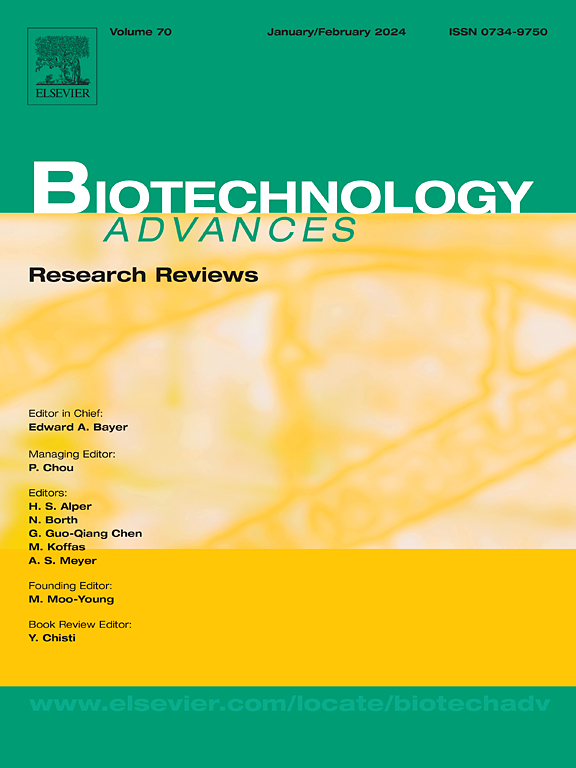From formate oxidation to CO₂ reduction: The role of formate dehydrogenase in sustainable carbon utilization
IF 12.1
1区 工程技术
Q1 BIOTECHNOLOGY & APPLIED MICROBIOLOGY
引用次数: 0
Abstract
The escalation of global climate change and environmental degradation has made it imperative to develop innovative strategies to mitigate carbon dioxide (CO₂) emissions and enhance its utilization. Formate dehydrogenase (FDH) is a key enzyme capable of catalyzing the reversible conversion between CO₂ and formate. Due to its critical role in sustainable carbon recycling processes, FDH has garnered significant attention in recent times. This review offers a thorough analysis of FDH, emphasizing its dual function of converting one carbon (C1) substrates and providing reducing power. Recent advancements in utilizing FDH for CO₂ reduction, both in vitro and in vivo, underscoring its potential to facilitate carbon capture and conversion under mild conditions. Additionally, this review discusses the limitations of FDH in C1 metabolism and proposes targeted strategies to address these challenges. Future research should focus on achieving a balance between energy production and carbon assimilation, mediated by FDH activity. Ultimately, this work aims to offer both theoretical insights and practical guidance, advancing microbial engineering for CO₂ reduction and resource recycling, and contributing to the development of sustainable carbon utilization technologies.
从甲酸氧化到CO₂还原:甲酸脱氢酶在可持续碳利用中的作用
随着全球气候变化和环境恶化的加剧,制定创新战略以减少二氧化碳(CO 2)排放并提高其利用率势在必行。甲酸脱氢酶(FDH)是催化CO₂与甲酸酯可逆转化的关键酶。由于外佣在可持续的碳循环过程中扮演重要角色,近年来备受关注。本文对FDH进行了全面的分析,强调了其转化一碳(C1)底物和提供还原功率的双重功能。在体外和体内利用FDH减少CO₂的最新进展,强调了其在温和条件下促进碳捕获和转化的潜力。此外,这篇综述讨论了FDH在C1代谢中的局限性,并提出了有针对性的策略来解决这些挑战。未来的研究应侧重于实现能量产生和碳吸收之间的平衡,由外佣活动介导。最终,本工作旨在提供理论见解和实践指导,推动微生物工程在CO₂减排和资源循环利用方面的发展,并为可持续碳利用技术的发展做出贡献。
本文章由计算机程序翻译,如有差异,请以英文原文为准。
求助全文
约1分钟内获得全文
求助全文
来源期刊

Biotechnology advances
工程技术-生物工程与应用微生物
CiteScore
25.50
自引率
2.50%
发文量
167
审稿时长
37 days
期刊介绍:
Biotechnology Advances is a comprehensive review journal that covers all aspects of the multidisciplinary field of biotechnology. The journal focuses on biotechnology principles and their applications in various industries, agriculture, medicine, environmental concerns, and regulatory issues. It publishes authoritative articles that highlight current developments and future trends in the field of biotechnology. The journal invites submissions of manuscripts that are relevant and appropriate. It targets a wide audience, including scientists, engineers, students, instructors, researchers, practitioners, managers, governments, and other stakeholders in the field. Additionally, special issues are published based on selected presentations from recent relevant conferences in collaboration with the organizations hosting those conferences.
 求助内容:
求助内容: 应助结果提醒方式:
应助结果提醒方式:


